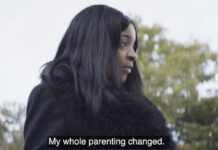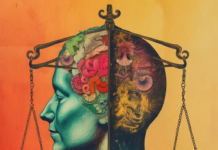Autism has been historically construed as being mutually exclusive with happiness and success. Philosophers and researchers Robert Chapman and Havi Carel bring the paradox of autistic thriving to light and reevaluate what it means to experience the “good human life.”
Chapman and Carel unpack the types of injustices that autistic people face—primarily having their intelligence or autonomy discounted in social and medical interactions. Then they look at “Autism’s Catch-22,” wherein autistic people are expected to fall in line with a prototypical view of autistic struggling, and if they don’t, they are seen as “not autistic.” With all this in mind, the authors aim to find ways to reframe autism and autistic thriving so that the injustices they face can be remedied.
“Importantly, autism slightly differs from many cases of disability insofar as autistic people do tend to have low levels of wellbeing,” Chapman and Carel write.
“Specific disabilities are associated with low wellbeing if they are associated with high levels of stigma or greatly impaired functioning. With this in mind, it’s vital to consider that how autistic voices have consistently argued that any impediment to autistic wellbeing and functioning is best understood in terms of social barriers, marginalization, stigma, and exclusion. For instance, Milton and Sims found that a key reason autistic people attributed to hindering their wellbeing was barriers to belonging, rather than simply their being autistic.”
 The “medical deficit view” of autism sees it as a neurodevelopmental disorder that hinders communication and reduces one’s capacity for empathy. Critical scholars and activists have argued that the medical deficit view of autism makes it out to be intrinsically at odds with happiness and success, and this is how autistic people are often unjustly stripped of their ability to represent themselves.
The “medical deficit view” of autism sees it as a neurodevelopmental disorder that hinders communication and reduces one’s capacity for empathy. Critical scholars and activists have argued that the medical deficit view of autism makes it out to be intrinsically at odds with happiness and success, and this is how autistic people are often unjustly stripped of their ability to represent themselves.
For instance, Autism Speaks has been offered as an example of an organization that “combats” autism, as though it were an opponent in a battle, while rarely if ever letting autistic people offer testimony to their own lives and well-being. In this way, organizations such as Autism Speaks have been connected to a larger Autism Industrial Complex, a centralization of techniques used to combat autism and generate profit by recycling fear-monger narratives and preying upon families.
However, the conclusions that have led us to the medical deficit view are based upon what Dr. Sami Timimi has referred to as “scientism,” or the use of jargon and non-definitive language that yields definitions and categories. This, in turn, decreases the perceived credibility, self-awareness, and/or reliability as narrators of autistic people—evinced in the view that people with autism are “mind-blind.” As a result, autistic people have their narratives taken away from them, and as Chapman and Carel point out, any autistic person who is too capable is then labeled a phony.
The authors point to two primary forms of injustice that autistic people face: epistemic injustice and hermeneutical injustice. Epistemic injustice is a denial of intelligence, and it discounts one’s capacity for self-representation. Hermeneutical injustice is the shuffling and obfuscation of collective testimony or community voices. A community suffering from hermeneutical injustice is being intentionally hidden or talked over. In this case, the authors find that autistic people suffer from both of these injustices.
“For instance, [David] Mitchell (2017) reports that when he helped translate and publicize the book of autistic writer Naoki Higashida, they were beset by accusations that the voice could not be “genuine” because, for instance, the prose was too articulate, and the author used metaphor.”
Chapman and Carel clarify that autism can make life harder because of serious external barriers to achieving happiness. However, they take issue with the comparison between neurotypical happiness and happiness for autistic people, seeing it as creating a never-ending dismissal of autistic thriving.
Thus, the Catch-22 of autism: when an autistic person is too happy, too successful, or claims to be living the “good human life,” there can only be two possibilities. One, they are wrong—they are not living a good human life. Or two, they are not autistic.
The authors bring up four routes for the amelioration of this paradox. First, and perhaps most importantly, is the destruction of the medical deficit view of autism.
“Emphasis on opening up the horizon of possible non-pathologized descriptions and interpretations of autism is crucial for enabling a move away from a monolithic and narrow understanding of autism through a medical lens whilst retaining the option to receive medical support and treatment if so wished,” they write.
They also stress the importance of framing the good human life in non-comparative terms. Saying “this is what happiness looks like for me, and people with autism don’t experience that, so they must not be happy” doesn’t properly capture an individual’s capacity for happiness or flourishing.
“Whether someone, is, say, courageous or kind, should be understood in relation to their individual capacities, rather than in relation to a species-norm,” they argue. “This allows us to understand virtues as shared but importantly relative to the individual rather than the species. The approach can inform a revised view of the good life, and of flourishing, that is person-centered and moves away from the focus on species-typical function.”
Chapman and Carel continue by pointing out how autistic self-understanding and “neurotypical epistemic-humility” are core to the relativization of the good human life. To give voice back to people with autism, they must be encouraged and supported to interpret their own experiences. Simultaneously, neurotypical people must be willing to empathize with their experiences rather than dismiss them; as neurotypical people have claimed that autistic people lack empathy, so can neurotypical people lack empathy for autistic people.
The researchers remind us that these problems, while poignant for autistic people, are not necessarily isolated. Many groups suffer from epistemic and hermeneutical injustice—being made to feel invisible or being forced to stand behind someone else’s interpretation of one’s own experience is far too pervasive for minority communities.
****
Chapman, R., & Carel, H. (2021). Neurodiversity, Epistemic Injustice, and the Good Human Life [Forthcoming manuscript]. Journal of Social Philosophy. (Link)















Nice article, Liam! Am intrigued to ask you how you process the non-dominant and submissive for lack of a better word(s). For while I, too would major in Biology and have a class with a few psychology classes that reinforced Skinner’s belief, the real lessons began when I attempted to work in a bank while applying to Georgia’s Ecology School led by Odom.
My family doctor who was my Uncle would discourage the effort along with family. The search for values and value while working in a bank became a window into the speed of numbers, computers and thermodynamics and depression.
Financial numbers are not the same as physics and the strange reality(s) of strange attractors. The darkness of the midnight hour, the questioning of knowing something is wrong and the gradual erosion of the self becomes consumed with identity and self-worth. Fortunately, I would have an Uncle (who I could talk with) realized I needed to have a talk with the Dr. Uncle who would then proceed to explain patiently what was happening. Being in that room that Saturday morning at the Missouri Pacific Hospital still is an image that really became the turning point to go and follow the words of advice, “Live like there is no tomorrow”. Which in due time, there were no brakes on this engine.
Not until working the copying cameras in the History of Science Collection at OU while starting the MA in City Planning would I be given an article by one Jose Alfredo Bach, whose father had sent him the copy of Chemical and Engineering News. See: The Social Thermodynamics of Ilya Prigogine in Chemical and Engineering News, April, ’79 written by Wil Leopowski. And as such because of your last name, I wonder as to your musical abilities? You might also enjoy a reading of Godel, Escher and Bach. An early intro into computer coding, if not the artistry of Escher!
When the engineer oriented director of the planning program told me not to study this, then I would apply to the University of Waterloo. Harry Coblentz who would edit Environments and serve as the founding of the School of Regional and Resource Planning in the Faculty of Environmental Science was a teacher’s teacher. He served also as the first planning director for the City of Phoenix which in creating the first school in North America to integrate ecology with city planning was ? a phenomenal expression of that time?
I could not be dispatched into remote areas for being on Lithium and when I attempted to work off the meds, the choice of no meds was over ridden by the doctor(s).
I share this with you and readers because I believe our history is important, the way we learn is important and our ecology(s) is extremely important. And even stranger, though discounted by many scientist types, the Arts feed and liberate the imagination, equal to or beyond the limitations of statistical analytics. Hence, could the challenge be to work/play smarter than harder?
And if one’s spirit is young, LOL there is no telling what your dreamscape will reveal. I will wish you and all the readers/staff who might be mad at America or mad in America that a dear friend or someone will emerge to realize a celebration of sorts for the potential to recover and transcend the trauma. For life is short, but an incredible space to afford inward and outward seeing while learning how to be centered… and hopefully increasingly at Peace!
Report comment
I find this kind of article worrying. The summary quotes Sami Timimi but fails to mention that he has – rightly in my view- cast doubt on the very concepts of ‘autism’ and ‘neurodiversity’. Aren’t we all ‘neurodiverse’? And didn’t we used to find this easier to accept, before neoliberalism set up increasingly narrow parameters of acceptable ways of being human?
Report comment
My feelings exactly!
Report comment
Does the neuron firing off in a way that activates joy, happiness begin to create the stored networks, thereby diversity ? To hear people speak about neurodiversity begins to be comical. As if we are now integrated into the economy that tells us, suggests to us, that we not be present.
Report comment
“In this way, organizations such as Autism Speaks have been connected to a larger Autism Industrial Complex, a centralization of techniques used to combat autism and generate profit by recycling fear-monger narratives and preying upon families.”
Actually no. Autism Speaks is a smoke screen scapegoat that woke schools use as a distraction. It’s little more than a money laundering scheme that aims to line it’s own pocket. And as for the “Autism Industrial Complex”, speaking as an autistic, that’s just a woke term used by SJW media like this that aims to force feed an agenda even though it has been documented that autism is treatable for those that need it despite what the media industrial complex says. Autism speaks ignored actual studies that reduce autism symptoms. While i’m not a fan of the Neurodiversity movement, Autism Speaks is only in it for the money.
Report comment
According to one source, neurodiversity can be defined as ‘diverg(ing) from the dominant societal standards of “normal” neurocognitive functioning’ (Walker, 2021). Presumably, then, this boundary changes on a regular basis, and presumably we are all likely to shift from ‘neurotypical’ to ‘neurodiverse’ and back again as it does so? And presumably, although we are encouraged to believe that the line between ‘neurodiverse’ and ‘neurotypical’ is drawn in our brains (eg ‘wired differently’), it actually only exists at the level of social norms? Just like psychiatric diagnosis, in fact, with its ever-expanding boundaries of what counts as ‘mentally ill.’ Can’t help feeling that it would be better to drop these categories altogether.
Report comment
I agree 100%!
Report comment
We always agree, Steve!
Report comment
We do seem to, don’t we?
If you ever come to the West Coast of the USA, I think we’d have a hell of a great lunchtime discussion! I hope we get to meet one day – there are few people who evoke that wish for me, but you’re definitely one of the top!
Report comment
Would love to! But it’s not on the cards at present…. If you ever visit Plague Island, I can show you lots of nice places to eat in Bristol, England.
Report comment
I’ll put it on the agenda for my next tour of England!
Report comment
Great points, Lucy, and I (like Steve) totally agree. I think another issue with “neurodiversity” is one of reductionism – conflating the mind with the brain. The fact that some people behave differently from what society considers “normal” doesn’t mean they have a malfunctioning brain. The word “neurodiverse,” similar to the DSM-5’s new category of “neurodevelopmental disorders,” is used to create the impression that certain people have brains that are fundamentally different than those of “normal” people. But in both cases, there is no evidence for this and what has happened is a rhetorical sleight of hand in which socially constructed differences in thinking/feeling/behaving have been switched to brain differences in order to make these phenomena seem more “real.” And this misdirection works thus bringing about the desired outcomes for the entities who promote the supposed validity of neurodiversity and neurodevelopmental disorders. For those of us who understand the flaws of biological psychiatry and it’s false claims of diagnostic validity and biogenetic causes of psychological differences, the reality that evolution and genetics make us all “diverse” and that this is both expected and beneficial for humanity, and the fact that socially constructed “abnormal” behaviour does not indicate a brain defect, these concepts are just silly.
Report comment
Very good points, Brett, and I agree.
Report comment